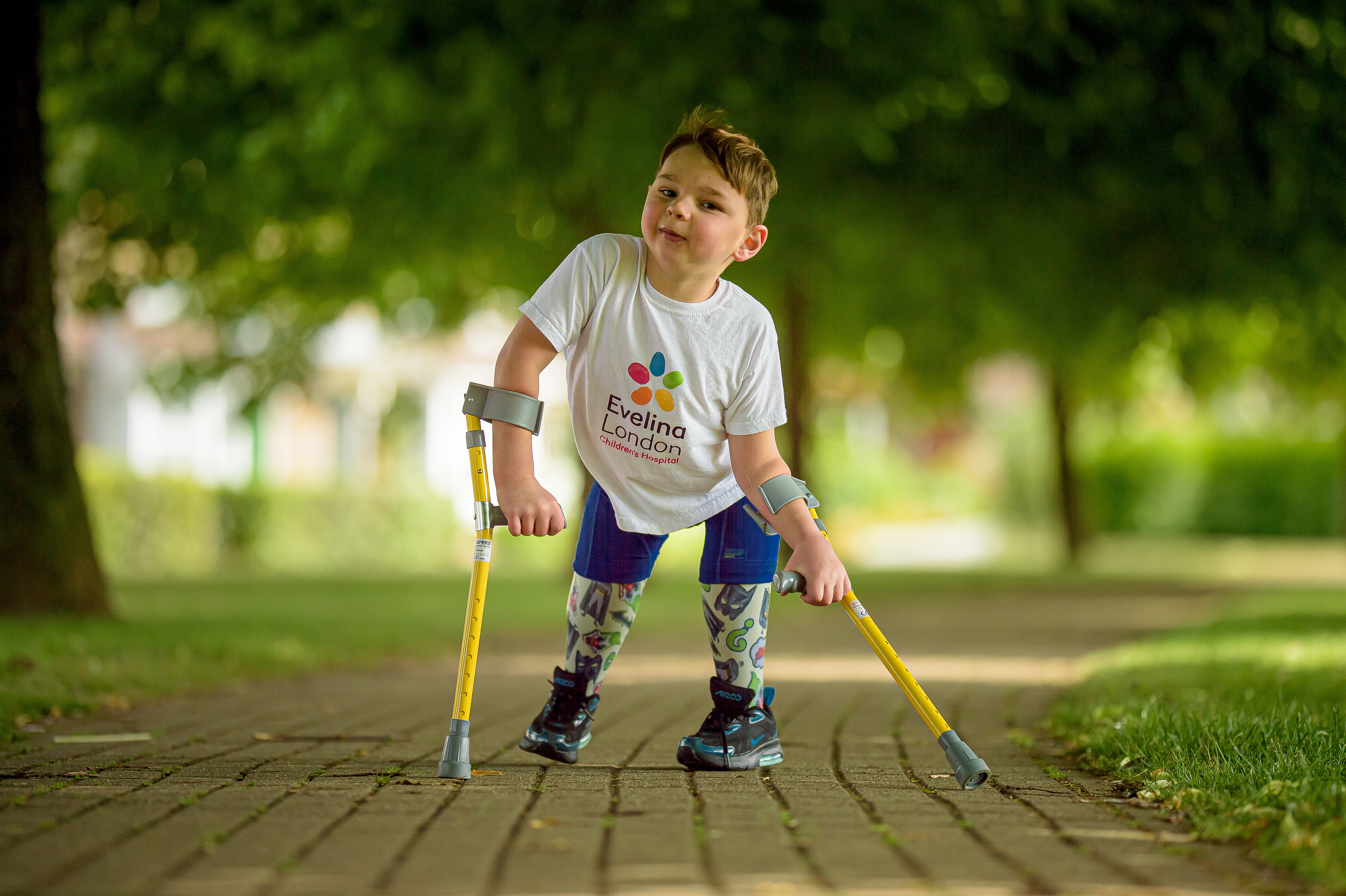Child abusers could face life behind bars under plans for tougher sentences
The tougher sentences were inspired by Tony Hudgell, who had to have both his legs amputated in 2017 after being tortured by his birth parents.

Your support helps us to tell the story
From reproductive rights to climate change to Big Tech, The Independent is on the ground when the story is developing. Whether it's investigating the financials of Elon Musk's pro-Trump PAC or producing our latest documentary, 'The A Word', which shines a light on the American women fighting for reproductive rights, we know how important it is to parse out the facts from the messaging.
At such a critical moment in US history, we need reporters on the ground. Your donation allows us to keep sending journalists to speak to both sides of the story.
The Independent is trusted by Americans across the entire political spectrum. And unlike many other quality news outlets, we choose not to lock Americans out of our reporting and analysis with paywalls. We believe quality journalism should be available to everyone, paid for by those who can afford it.
Your support makes all the difference.Child abusers could face life behind bars under plans for tougher sentences confirmed by the Government.
Maximum punishments for a range of child cruelty offences are among a series of measures ministers want to add to the Police Crime, Sentencing and Courts Bill currently going through Parliament.
The changes, dubbed Tony’s Law follow a campaign by MP Tom Tugendhat and the adoptive family of seven-year-old Tony Hudgell who had to have both his legs amputated in 2017 as a result of abuse suffered at the hands of his birth parents.
In welcoming the changes Tony’s adoptive mother Paula Hudgell said that more had to be done to protect vulnerable children and the planned tougher sentences are for “Tony and all the babies and children that suffered or lost their lives at the hands of their abusers”.
Tony was attacked when he was a baby and left with broken fingers and toes, plus torn ligaments in his legs.
He was left untreated and in agony for 10 days.
The terrible damage meant that both his legs had to be amputated and Tony is now wheelchair-bound.
His birth parents were sentenced to the current maximum jail term of 10 years.
The tougher planned sentences could mean that anyone who causes or allows the death of a child or vulnerable adult in their care will face up to life imprisonment, rather than the current 14-year maximum.
Under the changes, dubbed Tony’s Law, the maximum penalty for child cruelty causing or allowing serious physical harm from 10 years to 14 years.
The punishment for the crime of cruelty to a person under 16 will rise from 10 to 14 years’ imprisonment.
In a statement Ms Hudgell said: “We are delighted that Tony’s Law is being backed by the Government.
“It’s been our hope since those who abused our son were jailed in 2018 that more could be done to protect other children, the most vulnerable members of our society.
“I can’t thank the public enough for the support they have shown through this nearly four-year campaign, but especially thanks to Tom Tugendhat who has worked tirelessly with me, also my friend Julia Roberts, a court reporter and my friends and family it was definitely a team effort.”
Tony has gone on to help others with a fundraising walking challenge.
He set out to raise £500 for the hospital that saved his life by walking 10km in 30 days on his prosthetic legs, but ended up raising more than £1 million.
Deputy Prime Minister, Lord Chancellor and Secretary of State for Justice, Dominic Raab said the changes were needed because “the law must provide maximum protection to the most vulnerable and no-one is more vulnerable than a young child.”
He added: “I pay tribute to the courage of young Tony Hudgell and his adoptive parents, Paula and Mark.”
Ministers also confirmed that an amendment to the Police, Crime, Sentencing and Courts Bill will see offenders who kill an emergency services worker while committing crime being given a mandatory life jail sentence.
The law change marks the end of a two-year campaign by Lissie Harper after her husband, police officer Andrew Harper, was killed in the line of duty while answering a late-night burglary call.
Mrs Harper, 30, previously said she was “outraged” over the sentences handed to the three teenagers responsible for her husband’s death.
It prompted her to lobby the Government to better protect emergency services workers on the front line.
The so-called Harper’s Law makes it on to the statute books in an amendment which will extend mandatory life sentences to anyone who kills an emergency worker whilst committing crime, unless there are truly exceptional circumstances.
Pc Harper, 28, died from his injuries when he was caught in a strap attached to the back of a car and dragged down a winding country road as the trio fled the scene of a quad bike theft in Sulhamstead, Berkshire, on the night of August 15 2019.
Henry Long, 19, was sentenced to 16 years and 18-year-olds Jessie Cole and Albert Bowers were handed 13 years in custody over the manslaughter of the Thames Valley Police traffic officer.
Long, the leader of the group, admitted manslaughter, while passengers Cole and Bowers were convicted of manslaughter after a trial at the Old Bailey.
All three were cleared of murder by the jury.